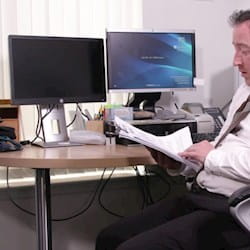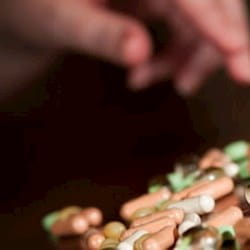A TRIAL “intervention” in a cohort of Scottish GP practices reduced the rate of high-risk prescribing of antiplatelet medications and NSAIDs and led to fewer hospital admissions for adverse drug reactions, according to a study led by NHS Tayside and the University of Dundee.
Researchers looked at high-risk prescribing of non-steroidal anti-inflammatory drugs (NSAIDs) like ibuprofen or antiplatelet agents like aspirin – including prescriptions to people with kidney problems or heart failure and those taking anticoagulant drugs like warfarin.
The study involved a 48-week trial intervention in 33 general practices across Tayside (with just over 200,000 registered patients) comprising professional education, informatics to facilitate reviews of patient treatment and small financial incentives for practices to review patients.
The interventions led to a 37 per cent reduction in high-risk prescribing, and this improvement was sustained in the 48 weeks after financial incentives to review were withdrawn. The rate of hospital admissions for gastrointestinal ulcer or bleeding was significantly reduced from 55.7 to 37.0 admissions per 10,000 person-years, as was the rate of admissions for heart failure.
High-risk prescribing and preventable drug-related complications in primary care are major concerns for healthcare systems internationally. Up to 4 per cent of emergency hospital admissions are caused by preventable adverse drug events. The majority of drug-related emergency admissions are caused by commonly prescribed drugs, with substantial contributions from NSAIDs and anti-platelet medications like aspirin because of gastrointestinal, cardiovascular and renal adverse drug events.
Professor Bruce Guthrie, of the University of Dundee, said: "Our previous work has shown that high-risk prescribing is common and often causes important harm. This new study shows that relatively simple interventions can significantly reduce high-risk prescribing in a lasting way, and are associated with reductions in emergency hospital admission for related complications.
"The NHS and many other health services internationally could, and we believe should, implement this kind of intervention now."
The study was funded by the Scottish Government Chief Scientist Office and the results were published in the New England Journal of Medicine.
This page was correct at the time of publication. Any guidance is intended as general guidance for members only. If you are a member and need specific advice relating to your own circumstances, please contact one of our advisers.
Save this article
Save this article to a list of favourite articles which members can access in their account.
Save to library


